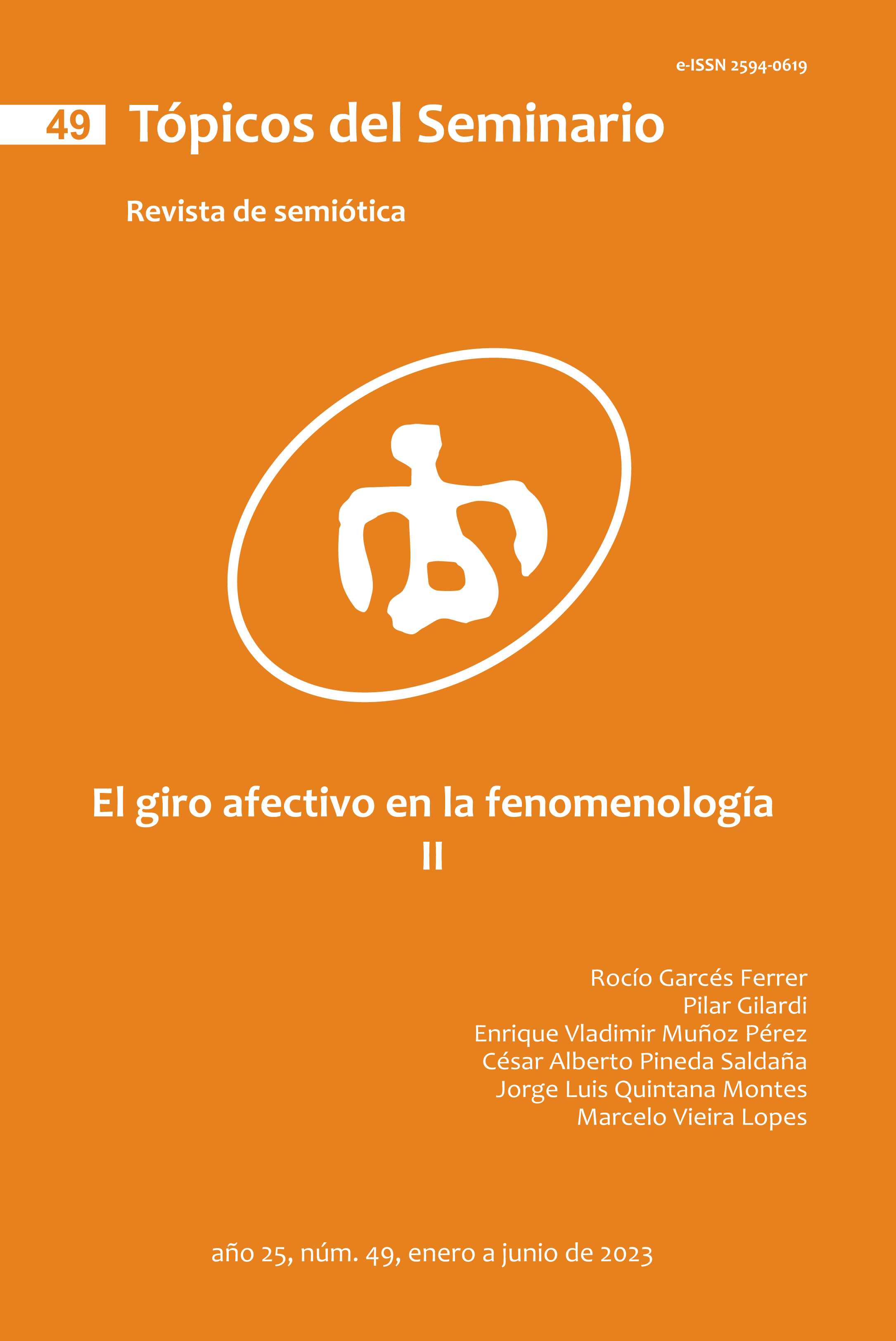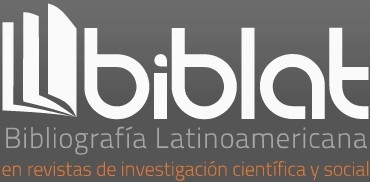Archives
-

Enunciation: Current Reflexions
Vol. 1 No. 53 (2025)Reflections on enunciation already have a long trajectory that has given rise to the proposal and development of a whole field of notions that, at present, continue to redefine the enunciative domain.
The articles gathered in this volume revisit the question of enunciation in order to update it, highlight the validity of its productivity and make it advance in other directions by posing and analyzing new problems. In their own way, each one of them continues with the conceptual expansion that, since the first works, contributed to clarify and enrich the notion of enunciation to the point of making it a field of knowledge and understanding of the processes of signification, while establishing a dialogue with authors and reference works to propose other forms of interpretation, as well as other possibilities of research. -

Homenaje a Desiderio Blanco
Vol. 2 No. 52 (2024)Este número de Tópicos del Seminario ofrece una mirada profunda y diversa sobre la obra y el legado de Desiderio Blanco (1929 – 2022) en el campo de la semiótica. Desde su labor como traductor de textos esenciales hasta su investigación original en la semiótica del cine, los autores exploran las múltiples facetas intelectuales y académicas de Blanco. A través de análisis detallados y reflexiones críticas, se destaca su influencia en la semiótica hispana y franco parlante, así como su contribución a la comprensión de la comunicación, la interpretación y la significación en diferentes contextos culturales.
-

Orality and Writing. Homage to Raúl Dorra
Vol. 1 No. 51 (2024)This new edition of Tópicos del Seminario, in memory of Raúl Dorra, adds 51 issues to the repertoire of the journal, which is celebrating its 25th anniversary. Here we return to a fundamental theme in the thinking of the founder of the SeS: the relationship between orality and writing. In the eight works in this volume, the reader will find an overview of the essential approaches to the subject and will be confronted with some of the questions that Raúl Dorra left us. The texts gathered together have the purpose of motivating reflection and awakening the spirit to share knowledge, discuss it and, above all, open paths to continue with the research on the voice, the body, memory and the forms through which they are inscribed in the discourse.
-

Visual Culture
Vol. 2 No. 50 (2023)It is possible to think that the notion of visual culture has existed since we have been talking about culture in general, but as a specific concept, "visual culture" currently designates not only a component of culture, the visually perceived, but also a set of visual practices, as well as an academic discipline. Thus, the field of visual culture, understood as a discipline, would be a research space that refuses to take the question of vision for granted and insists on seeing it as a problem, not as a solution. This volume of Tópicos del Seminario intends to focus on the study of this component of culture.
-

The Affective Turn in Phenomenology
Vol. 1 No. 49 (2023)The second volume of The Affective Turn in Phenomenology brings together six studies focusing on various aspects of the analysis of affectivity within the framework of Heidegger's hermeneutic phenomenology. As mentioned in the presentation of the first volume, on the specific topicality that phenomenology possesses in its treatment of affectivity, it can be said that there are more and more possibilities for a fruitful dialogue with interdisciplinary approaches. On this occasion, psychiatry and medicine, but also some aspects pertaining to political theory and social philosophy, are the fields that appear repeatedly in these articles devoted to affectivity.
-

The Affective Turn in Phenomenology
Vol. 2 No. 48 (2022)The purpose of this issue is to extend an invitation to phenomenology through the thematization of the sphere of affective life and the idea of affectivity in general, in order to offer a sample of the conceptual work of this particular methodological direction of contemporary philosophy. The first volume, presented here, is composed of eight texts that, for the most part, are based on aspects linked to the development of Husserlian transcendental phenomenology. A second issue will be composed of works that will start, mainly, from aspects linked to the development of hermeneutic phenomenology.
-

Claude Zilberberg: Tensive Semiotics
Vol. 1 No. 47 (2022)This second volume dedicated to the work of Claude Zilberberg is intended to extend the concert of tributes to a singular theoretician within the so-called Paris Semiotic School, which was built on the legacy of F. de Saussure, L. Hjelmslev and A. J. Greimas. The authors gathered here have set themselves the task of exposing and investigating the central aspects of a theory -tensional semiotics- whose fecundity, put to the test in the analysis of discourses from different fields such as poetry, European classical music, politics or contemporary art, readers will not fail to bear witness here.
With these contributions, which are added to the previous volume, Claude Zilberberg will undoubtedly be recognized among semioticians as one of the great architects of this new "science of signification" - his vocation from the outset - which is the semiotic theory that brings us together.
-

Claude Zilberberg: Tensive Semiotics
Vol. 2 No. 46 (2021)To highlight the internal intelligence of the tension theory bequeathed by Zilberberg, the magazine Tópicos del Seminario has produced in his honor this special issue - which will be completed by a second issue soon - with the purpose of offering a tribute to those who, both through their work as for his person, he has left a masterful teaching. Rhythm, development, duration... some of our author's favorite themes are recognized there, in which affection, the event, the concession, the aspectuality, the phoria converge, themes that have not stopped demanding the craft of craftsman from Zilberberg. It is a vast project of prosodization of the content plane, in its endless search for categories abstract enough to allow us to concomitantly think about signifiers and meanings within semiosis.
-

Semiotics and post memory II
Vol. 1 No. 45 (2021)Also dedicated to the subject of post-memory, this second volume now explores its limits and frontiers. Temporal, epistemological and discursive, phenomenological, psychic and (epi) genetic boundaries. The articles that are part of this volume attempt to contribute to the joint effort to conceptualize post-memory.
-

Semiotics and post- memory
Vol. 2 No. 44 (2020)This issue of Tópicos del Seminario is dedicated to the study of post-memory, understood as the transmission of the memory of the generation that experienced collective trauma firsthand to subsequent generations. Based on the dialogue between different disciplines, and starting from the analysis of the most diverse historical experiences –the Holocaust, the Armenian genocide, the dictatorships of Latin America… -, this joint reflection is oriented towards the conceptualization and theorization of said phenomenon thanks to the identification of its "invariable" foundations, its scope and its limits.
From the body to the discourse, and from the unrepresentable of extreme experience to its possible elaboration, each author thus contributes elements of response to the enigma of post-memory, exploring the area in which it constructs a universe of significance.













